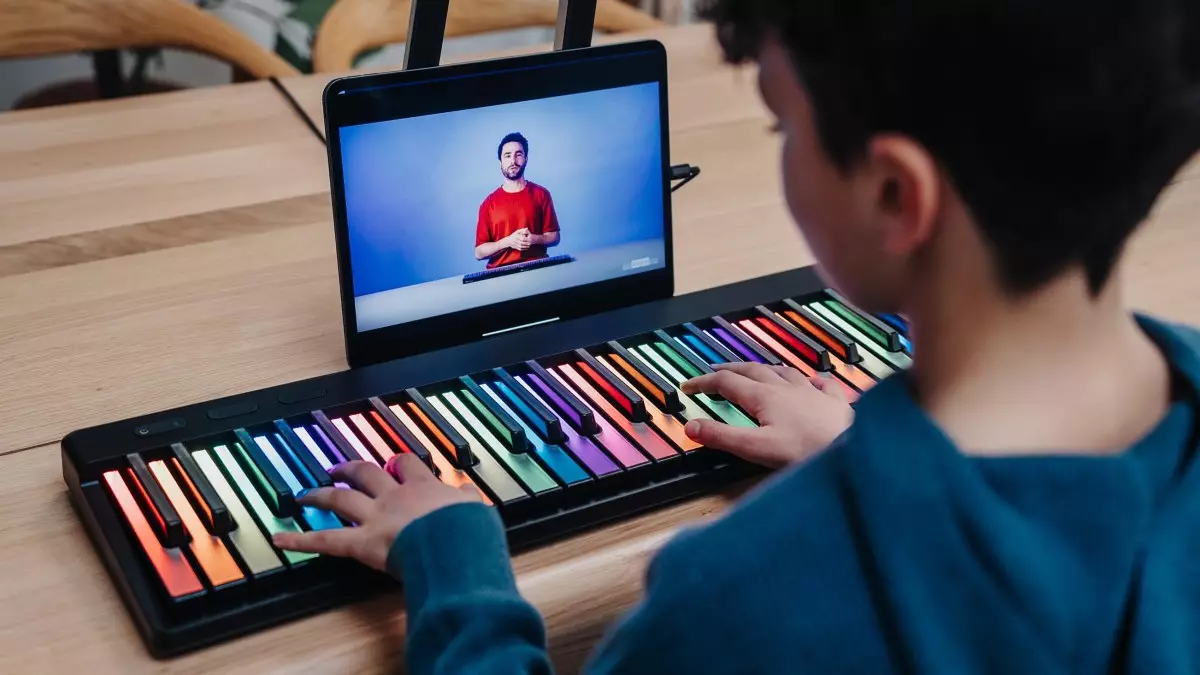Roli, a pioneering music technology company based in London, has made headlines with the introduction of its latest product, the Roli Piano, at the NAAM audio show in Anaheim. By expanding their product line to include educational instruments, Roli is clearly positioning itself to thrive within a vastly more accessible market. This ambition comes on the heels of the company’s challenging past, including a bankruptcy filing in 2021. By focusing on music education, Roli is not just creating instruments; it is attempting to change the way aspiring musicians learn and interact with music.
The Roli Piano is designed with 49 illuminated MIDI keys, doubling the key count of its predecessor, the Roli Piano M. This significant increase reflects Roli’s intent to provide a more versatile instrument for learners. The glowing keys enhance visual feedback, making it easier for users to follow along with an instructional app available on mobile devices. This integration of technology is not new to the Roli family, yet it showcases how the company is continually adapting to meet the needs of modern learners.
In addition to the user-friendly interface, Roli’s Piano AI Assistant introduces a groundbreaking component to the learning experience. Marketed as one of the first uses of generative AI in musical instruction, this feature aims to streamline the learning process. By incorporating music theory and personalized feedback, the Assistant presents an opportunity for intuitive learning that goes beyond mere practice. However, the effectiveness of this AI-driven instruction remains to be seen as the piano hits the market.
Positioning the Roli Piano at a price point of $599, with a limited-time introductory offer of $399, demonstrates a strategic approach aimed not only at recouping past losses but also at capturing a broader audience. While significantly more expensive than the Piano M’s $249, this product is clearly targeting a segment of the market that values innovative educational technology. However, such pricing could alienate budget-conscious students and parents in an era where affordability is paramount in educational tools.
Roli’s prior products, including the Seaboard and Blocks, garnered mixed reactions due to their niche appeal. In stark contrast, educational tools potentially hold a broader consumer base. Music education is a realm bustling with demand, as evidenced by the growing popularity of online music lessons and apps. By tapping into this market, Roli is making a calculated move to establish itself as more than just a producer of unique musical instruments.
As music education increasingly becomes intertwined with technology, Roli appears well-positioned to ride this wave of innovation. The introduction of the Roli Piano signifies a transformative shift in its product focus, allowing for potential growth within a competitive landscape. Learning to play an instrument has never been more engaging due to tech advancements, and Roli’s efforts to marry education and entertainment could indeed redefine the learning experience for future generations of musicians.
While Roli’s new educational product carries a hefty price tag and faces skepticism about its AI features, the company’s strategic pivot towards music education reflects its adaptability and potential for recovery. By embracing the intersection of technology and education, Roli may well become a leading player in shaping the future of how we learn music.

